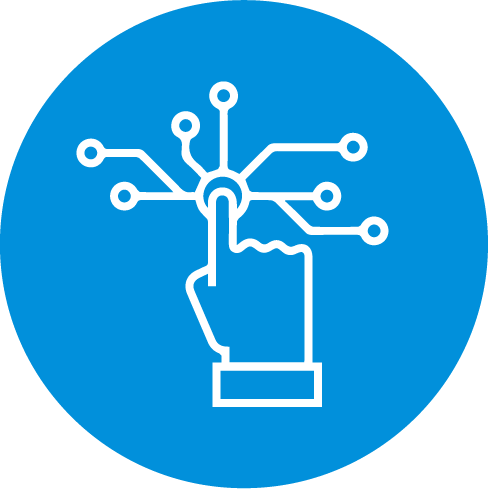Online Prerequisites for Health Professions
Fulfill prerequisites for nursing or other health programs
Interested in pursing a career in health care or advancing to a higher nursing degree, but need to complete come prerequisites before starting your program?
GW Nursing offers a catalog of prerequisite courses that satisfy requirements for our own programs, as well as many other health professions and graduate nursing programs. These courses are open to all students who need to fulfill prerequisites for nursing or other programs.
Why GW Nursing?
Completing your prerequisites at GW Nursing is cost effective and convenient.
Competitively PricedGW Nursing's health care prerequisites are similarly priced to offerings from other top-ranked institutions. |
Offered All Year RoundOur prerequisites are here whenever you're ready: spring, summer or fall! |
Online ConvenienceLearn from the convenience of home through asynchronous courses. We also offer virtual labs. |
Available Undergraduate Courses
- Ethical Foundations of Nursing (NURS 3101) - 3 credits
-
Offered in Spring, Summer and Fall
This 10-week course provides a basic understanding of ethical theory and principles as they relate to common ethical and moral dilemmas that challenge nursing professionals in clinical practice. The course introduces you to methods of analyzing and resolving moral dilemmas using clinical decision-making frameworks, as well as methods for increasing self-awareness by examining and understanding the impact of your own personal value systems.
Course Objectives
- Define commonly used principles and theories involved in bioethical decision-making.
- Identify historical factors that shaped the evolution of health care ethics.
- Describe the major bioethical dilemmas encountered by age, role and population-specific groups.
- Apply clinical decision-making frameworks to address bioethical dilemmas in clinical practice situations.
- Recognize the impact of personal values in ethical reasoning and nursing practice.
- Collaborate with group members to analyze contemporary bioethical issues.
- Nutrition for Health Professionals (NURS 3102) - 3 credits
-
Offered in Spring, Summer and Fall
This 10-week course addresses the fundamentals of human nutrition and their scientific foundations. You will learn about nutritional requirements related to changing individual and family needs, such as food choices, health behaviors, food safety, prevention of chronic disease and nutrition-related public health in the United States and globally.
Course Objectives
- Describe the six classes of nutrients and explain their molecular structure, dietary source, and roles in physiological functioning.
- Explain how nutrients are digested, absorbed, and excreted, and the consequences of toxicity or deficiency.
- Discuss dietary recommendations and how nutrition is portrayed in research, on food labels, and in the media.
- Compare the role of nutrition in different life stages in human development and the promotion of a healthy lifestyle.
- Explain how diet and physical activity impact body weight and risks for certain diseases, such as diabetes, heart disease, and cancer.
- Provide an overview of causes of foodborne illnesses and discuss strategies for keeping foods safe.
- Explore the relationship between poverty, malnutrition, and obesity and describe food insecurity.
- Summarize the process of assessing an individual’s nutritional status, developing a care plan, and evaluating progress.
- Identify strategies for assessing readiness to change and counseling individuals on dietary changes, taking into account different cultural and environmental settings.
- Anatomy and Physiology I with Virtual Lab (NURS 3103) - 4 credits
-
Offered in Spring, Summer and Fall
This 10-week course focuses on the fundamental structures and functions as they relate to the human body: homeostasis; anatomical language and body organization; tissues and histology; and integumentary, skeletal, muscular, nervous and endocrine systems. You will need to have a basic background in introductory cell/molecular biology.
Course Objectives
- Describe the interrelationship between anatomy and physiology as they relate to the various systems of the human body.
- Describe the levels of structural organization in an organism and the characteristics that define life.
- Utilize descriptive anatomical and directional terminology in the proper identification of various body structures.
- Describe homeostasis and explain how the body uses feedback mechanisms to maintain homeostasis.
- Describe the major characteristics, structure, function and location(s) of the various tissues of the human body.
- Describe the structural features and functions of the integumentary system, neurological system, endocrine system, skeletal system and muscular system.
- Apply knowledge of body systems to practical problem solving situations or case studies.
- Summarize the consequences or body’s response to physiological and anatomical changes.
- Anatomy and Physiology II with Virtual Lab (NURS 3104) - 4 credits
-
Offered in Spring, Summer and Fall
This 10-week course emphasizes the fundamental structures and functions as they relate to the human body: homeostasis; anatomical language and body organization; tissues and histology; cardiovascular, lymphatic, respiratory, digestive, urinary and reproductive systems.
Course Objectives
- Apply concepts of homeostasis, regional and directional terminology, and histology to the study of body systems.
- Describe gross anatomy and physiology of reproductive, cardiovascular, respiratory, urinary, lymphatic, and digestive systems.
- Describe the relationship between anatomical features of the systems and their related tissues.
- Calculate physiological parameters and interpret data.
- Recognize and explain the anatomical and physiological interrelationships within and between systems of the human body.
- Apply knowledge of the systems to practical, problem-solving situations.
- Demonstrate the consequences of physiological and anatomical changes on the body.
- Introduction to Statistics for Health Professionals (NURS 3106) - 3 credits
-
Important notes for students:
- Prerequisites offered through the GW Nursing satisfy our B.S.N. prerequisite requirements, but other schools may have different requirements. If you are taking these prerequisites for another school, we encourage you to contact one of their officials to determine if the course(s) meet their requirements there prior to your enrollment.
- Current GW undergraduate students must be granted a waiver to enroll in GW online prerequisite course offerings. Please see your academic advisor or school official.
- Microbiology for Health Professionals with Virtual Lab (NURS 3105) - 4 credits
-
Offered in Spring, Summer and Fall
This course explores principles of microbiology, with an emphasis on microorganisms that affect health and cause human disease. Topics include an overview of microbiology and aspects of medical microbiology, identification and control of pathogens, disease transmission, host resistance and immunity.
Course Objectives
- Compare the major differences between prokaryotic and eukaryotic organisms.
- Interpret the main morphological features of bacteria.
- Discuss microbial growth and metabolism of bacteria.
- Analyze the mode of action of antibiotics and the function of immunity against pathogens.
- Examine the causative agents of commonly encountered human infectious diseases.
- Interpret bacterial staining characteristics.
- Compare and contrast the biochemical tests used to differentiate bacteria.
- Introduction to Math for Health Professionals (NURS 3107) - 3 credits
-
This concepts-based course introduces students to the theory, practice, and application of math to dosage calculations in healthcare.
Course Objectives
Convert measurements within and between the metric system and the U.S. customary system works. (B2, B12) Interpret medication orders. (B2, B11, B12) Perform medical calculations using dimensional analysis and ratio and proportion. (B2, B4, B6, B12)
Available Graduate Courses
- Biostatistics for Health Care Research (NURS 6208) - 3 credit
-
Offered in Spring and Summer
Basic concepts and modeling approaches used in biostatistics through the use of health care research data.
- Advanced Physiology and Pathophysiology (NURS 6220) - 3 credits
-
Offered in Spring and Fall
System-focused advanced physiology and pathophysiology for analysis of health deviations across the life span.
- Advanced Health Assessment and Diagnostic Reasoning (NURS 6222) - 4 credits
-
Offered in Spring and Summer
Nurse practitioner and nurse-midwifery students will acquire the knowledge, skills and clinical foundation for advanced health assessment and diagnostic reasoning in the ambulatory health care setting. This course is a prerequisite to all other clinical courses and includes a Campus Learning and Skills Intensive (CLASI).
- Advanced Pharmacology for Nursing (NURS 6234) - 3 credits
-
Offered in Spring and Summer
Pharmacologic concepts commonly seen in advanced practice nursing; major pharmacological classes for selected disease states and application in therapeutic decision making to encounters across the lifespan. Prerequisite: NURS 6220.
Offered in Spring and Summer
Pharmacologic concepts commonly seen in advanced practice nursing; major pharmacological classes for selected disease states and application in therapeutic decision making to encounters across the lifespan. Prerequisite: NURS 6220.
Focused on your future
GW Nursing is committed to effecting change in our health care system by developing the nurse leaders of tomorrow and maintaining connections with the world's most influential health organizations, such as the National Institute of Health. Our students not only study the world, they also work to improve it and we make sure they have the skills and resources to do so.
Online LearningPrograms are delivered in an online format and are skillfully designed by our instructional designers to be both readily comprehensible and engaging. |
Exceptional FacultyOur faculty members are nationally recognized leaders in nursing who actively engage and inspire students to improve health care around the globe. |
Flexible FormatOnline courses are asynchronous, allowing the program to adapt to your needs and fit into your busy schedule. |
Diversity & InclusionWe are committed to creating a diverse, equitable and inclusive community to prepare our students to facilitate value-based health care delivery |
"My GW Nursing education gave me the skills and confidence needed to succeed."
Jared Moore
Class of 2020









